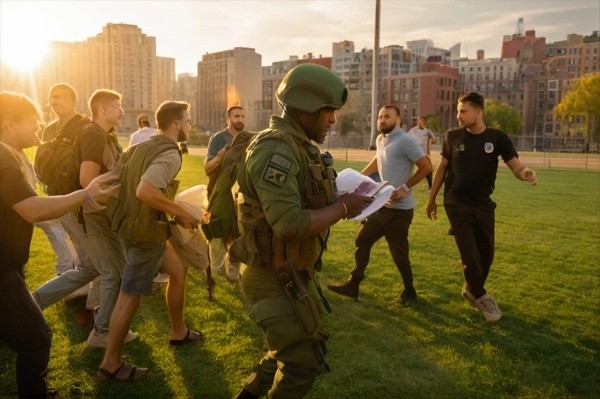Iran’s Plan to Strike Back Against the U.S.
Iran’s Military Preparations Following U.S. Attacks
Loading...

Lebanese group Hezbollah rejects Israeli accusation it was behind attack that hit a football pitch in Druze town of Majdal Shams.
Tragedy struck the Israeli-occupied Golan Heights as at least 11 people lost their lives and 19 others sustained injuries in a devastating rocket attack on a football pitch in the town of Majdal Shams. Israeli military spokesman Daniel Hagari confirmed the heartbreaking news, emphasizing that children were among those killed. The Israeli authorities swiftly pointed fingers at the Lebanese group Hezbollah, accusing them of orchestrating the attack. However, Hezbollah vehemently denied any involvement, stating that their "Islamic Resistance" had no connection to the incident.
The mounting tensions between Hezbollah and Israeli forces have been escalating since October 8, when Israel initiated its war on Gaza. The cross-border attacks, purportedly in solidarity with the Palestinian people, have sown seeds of fear and apprehension about a broader regional conflict.
In response to the attack, Israeli Prime Minister Benjamin Netanyahu cut short his trip to the United States and vowed a stern retaliation against Hezbollah. He expressed his determination to ensure that Hezbollah "will pay a heavy price, the kind it has thus far not paid."
The White House National Security Council condemned the rocket attack, reaffirming unwavering support for Israel's security against all Iranian-backed terrorist groups, including Lebanese Hezbollah. Meanwhile, Lebanon's government urged an immediate cessation of hostilities on all fronts and condemned attacks on civilians.
The aftermath of the attack has left the region on tenterhooks, with fears of further escalation looming large. Both sides, while denying a desire for an all-out war, have acknowledged their preparedness for such an eventuality. Gideon Levy, a columnist for the Israeli newspaper Haaretz, emphasized the gravity of the situation, highlighting the uncertainty and the pivotal moments ahead. Amidst the tension, political analyst Ori Goldberg expressed skepticism about the attack leading to an all-out war, citing the location of the attack on Israel's periphery rather than its heartland as a factor.
The rocket attack on the football pitch came in the wake of an Israeli assault in Lebanon that claimed the lives of four fighters. The Israeli military asserted that their aircraft had targeted a military structure belonging to Hezbollah after identifying fighters entering the building. In response, Hezbollah claimed responsibility for at least four retaliatory attacks, including the use of Katyusha rockets.
The Golan Heights, a 1,200-square-kilometer plateau, remains a contentious area, with a complex history dating back to the Six-Day War in 1967. Syrian territory occupied by Israel before its annexation in 1981, the region is home to a significant population of Syrian Druze, some of whom hold Israeli citizenship.
As the region grapples with the aftermath of this tragic event, the specter of further conflict casts a long shadow over the Israeli-occupied Golan Heights and beyond.
Editor
Iran’s Military Preparations Following U.S. Attacks
Troops remain in five strategic locations, raising fears of renewed tensions and long-term occupation.
Opposition forces have taken control of the capital after a significant offensive. Here is how it unravelled.
